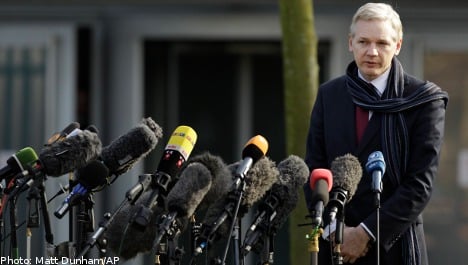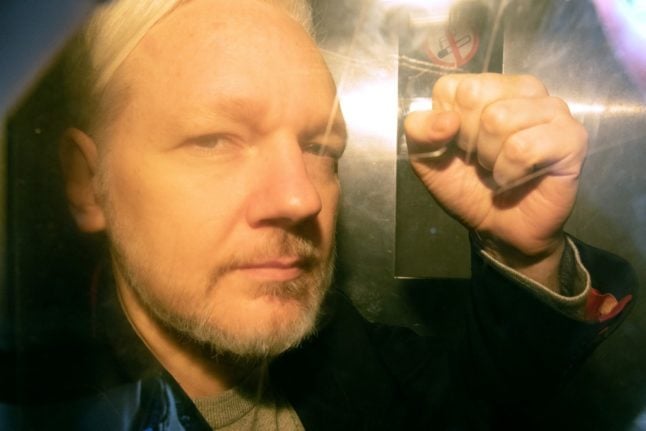According to the Expressen daily the two women know each other through their membership and involvement in the same political party and since the reported sex offence have exchanged messages on the internet and have been open about their friendship on their respective blogs.
They are also friends on Facebook, the newspaper reported on Thursday.
According to the newspaper, the interrogator, despite having taken part in the investigation, has written strongly worded negative comments about Julian Assange on her Facebook page.
In a status update at the end of February, she is reported to have written described Assange as an “over-hyped ready-to-burst bubble”.
Expressen pointed out that the officer in question must have realised as soon as the two women came in to provide statements last August that one of them was her acquaintance and co-party member, but she had not removed herself from the case and had instead gone on to interrogate the second alleged victim.
Neither of the victims had reportedly wanted to press charges against Assange but had instead gone to the police to find out if they could force him to undergo an HIV test after he had unprotected sex with them, despite their explicit request he use a condom.
According to media reports, it was one of the police officers involved in the interrogations who deemed what they had been through amounted to rape in one case and sexual molestation in another and took the matter to a prosecutor.
It remained unclear Thursday if the friend of the alleged victim was the officer who reported the matter to the prosecutor.
The interrogator in question declined to answer the newspaper’s questions and referred inquiries into the Assange case to police spokeperson Ulf Göranzon, who denied knowledge of the friendship between the two women.
“As I have not myself be given any information, other than through hearsay, then I am not prepared to comment,” Ulf Göranzon told Expressen.
Assange’s Swedish attorney was shocked upon learning of the report.
“With this now coming to light, I think you can question the entire preliminary investigation,” he told the newspaper.
He added that the lead interrogator should have informed her superiors that she knew one of the accusers.
Hurtig also found it curious that the two women who brought the sex crime allegations against Assange chose the police station where one of their friends was based.
“There’s really no good reason why they would have gone there,” he said.
He added that he plans to speak with Assange later in the day on Thursday to discuss the matter.
The Local’s attempts to reach Hurtig for comment on Thursday were unsuccessful.
Assange was arrested in Britain on December 7th on an international warrant issued by a Swedish prosecutor who wanted to question him over four separate allegations of sexual assault made by the two women relating to incidents in August 2010.
A UK court ruled in favour of extraditing the Australian to Sweden on February 24th. Julian Assange meanwhile continues to fight his extradition and lodged an appeal against the decision on March 3rd.
During those proceedings, Assange’s lawyers blasted the Swedish judiciary and claimed the allegations were motivated by anger at WikiLeaks’ publication of hundreds of thousands of secret US military and diplomatic documents.



 Please whitelist us to continue reading.
Please whitelist us to continue reading.
Member comments